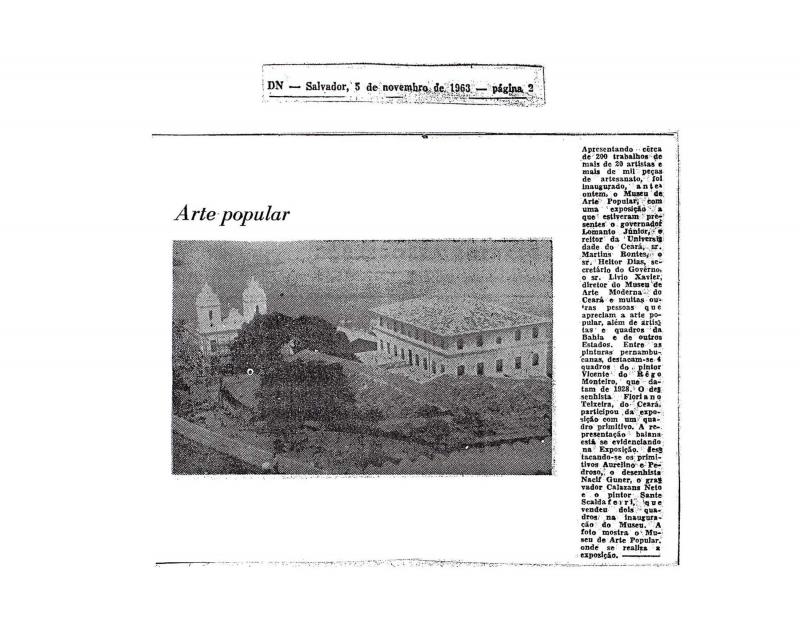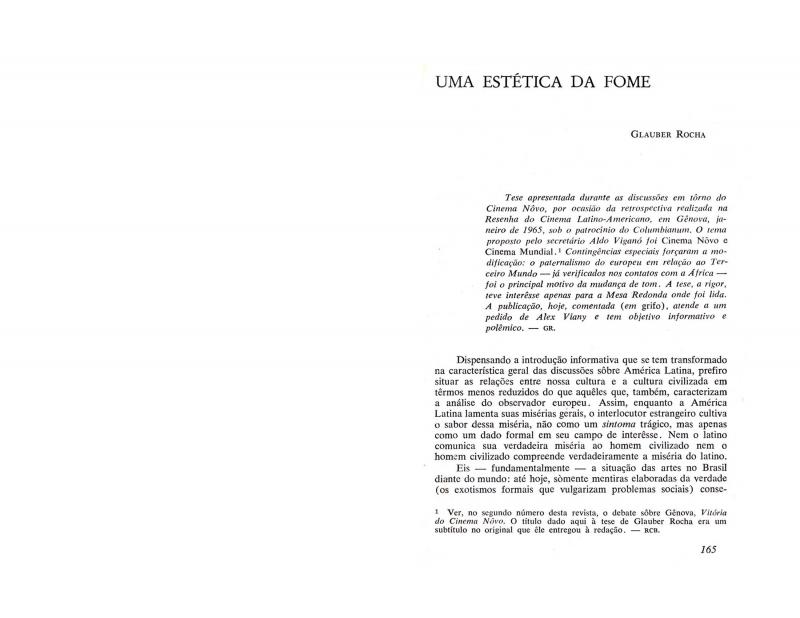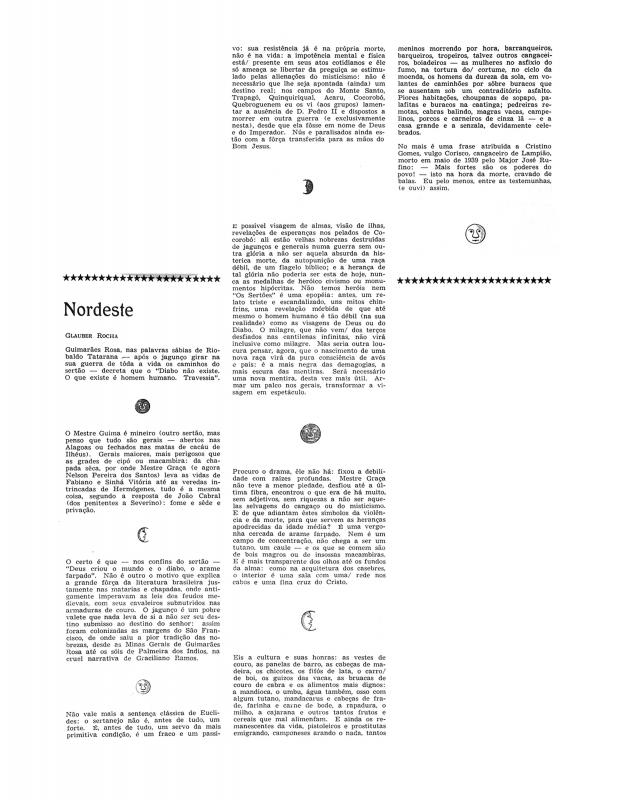The Museu de Arte Moderna da Bahia (MAMB) opened its doors in January 1960 at the initiative of the government of the state of Bahia; its director was architect Lina Bo Bardi. This document attests to the authentic utopian nature of a project led by someone who understood traditional Brazilian popular cultural as unique and unexploited raw material, an alternative capable of enlivening contemporary cultural production.
Italian architect Lina Bo Bardi (née, Achillina Bo, 1914–92) lived in Salvador, Bahia, from 1959 to 1964, the years she directed the Museu de Arte Moderna da Bahia (MAMB). Like her earlier work as the head of programming and education at the Museu de Arte de São Paulo (MASP), her performance as the director of MAMB evidenced a commitment to exhibitions on art history. She was also responsible for organizing shows of a wide range of contemporary artists from Brazil and beyond, and for efforts that placed emphasis on the importance of traditional popular culture from northeastern Brazil. Bo Bardi advocated organizing courses in art, music, film, and theater, and workshops in industrial design and crafts. Her work energized the art scene from this region of Brazil and allowed local artists to come into contact with major figures in contemporary art. In 1963, the Museu de Arte Popular (MAP), which housed works from different regions of Brazil, was opened. At the inaugural exhibition of MAP’s new location, constructed—at Bo Bardi’s insistence—at the Solar do Unhão in Salvador, Bo Bardi developed themes first formulated in the exhibition Bahia, which formed part of the V São Paulo Biennial (1959). In Bo Bardi’s view, the show should have been called Civilização do Nordeste, since the term “civilization” means “integral human life” (see ICAA digital archive doc. no. 110868). For further reading, see Lina Bo Bardi’s “Arte popular” (doc. no. 1110862).
Glauber Rocha is indisputably the greatest exponent of what is known as the Cinema Novo film movement. [On his ideas, see in the ICAA digital archive the manifesto “Uma estética da fome” (doc. no 807556) and “Nordeste” (doc. no. 1111194)].



